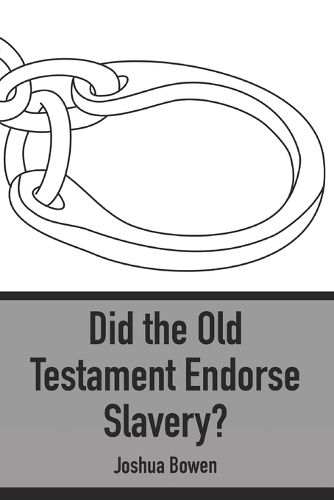Readings Newsletter
Become a Readings Member to make your shopping experience even easier.
Sign in or sign up for free!
You’re not far away from qualifying for FREE standard shipping within Australia
You’ve qualified for FREE standard shipping within Australia
The cart is loading…






The God of the Old Testament commanded and endorsed many practices that we find morally reprehensible today. High on the list was the institution of slavery, which features prominently in several sections of the Hebrew Bible. Fathers could sell their daughters into slavery, masters could beat their slaves, creditors could carry off children for failure to repay a debt, and foreigners could be kept for life, passed down as inherited property. How are we to make sense of all of this from our modern point of view? Atheists and skeptics will often say that the God of the Old Testament was a moral monster for endorsing such atrocities. Christians will often respond that the slavery in the Hebrew Bible wasn't as bad as we think, and was more like having a job or owning a credit card. While both sides of this debate are sincere in their positions, neither are ultimately correct. Our conclusions must derive from a thorough understanding of both the Old Testament and ancient Near Eastern contexts. This book will:
Provide a detailed overview of slavery laws and practices in the Old Testament and the ancient Near East. Examine the significant - and highly controversial - passages in the Hebrew Bible that deal with slavery, including laws about beating your slave, taking foreign chattel slaves, and what to do if a slave runs away from their master. Answer the most challenging questions about slavery in the Old Testament, including, "Could you beat your slave within an inch of their life and get away with it?" "Were slaves just property that had no human rights?" and "Did the Old Testament really endorse slavery?"
$9.00 standard shipping within Australia
FREE standard shipping within Australia for orders over $100.00
Express & International shipping calculated at checkout
The God of the Old Testament commanded and endorsed many practices that we find morally reprehensible today. High on the list was the institution of slavery, which features prominently in several sections of the Hebrew Bible. Fathers could sell their daughters into slavery, masters could beat their slaves, creditors could carry off children for failure to repay a debt, and foreigners could be kept for life, passed down as inherited property. How are we to make sense of all of this from our modern point of view? Atheists and skeptics will often say that the God of the Old Testament was a moral monster for endorsing such atrocities. Christians will often respond that the slavery in the Hebrew Bible wasn't as bad as we think, and was more like having a job or owning a credit card. While both sides of this debate are sincere in their positions, neither are ultimately correct. Our conclusions must derive from a thorough understanding of both the Old Testament and ancient Near Eastern contexts. This book will:
Provide a detailed overview of slavery laws and practices in the Old Testament and the ancient Near East. Examine the significant - and highly controversial - passages in the Hebrew Bible that deal with slavery, including laws about beating your slave, taking foreign chattel slaves, and what to do if a slave runs away from their master. Answer the most challenging questions about slavery in the Old Testament, including, "Could you beat your slave within an inch of their life and get away with it?" "Were slaves just property that had no human rights?" and "Did the Old Testament really endorse slavery?"